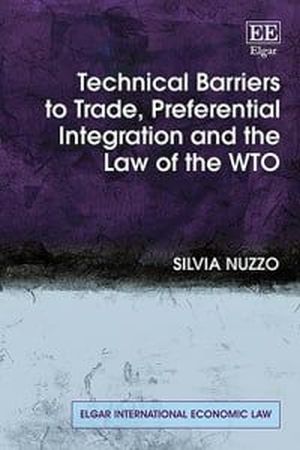
Against the backdrop of geopolitical uncertainty, and a departure from multilateralism, the WTO’s role in global trade is diminishing. In this insightful book, Silvia Nuzzo examines the increase in preferential trade agreements (PTAs) and more specifically, how these agreements regulate technical barriers to trade (TBTs). Nuzzo explores the extent to which these agreements uphold WTO obligations and what this may mean for the future of multilateral trade.
Adopting a multi-faceted methodology, the book analyzes over 80 PTAs, including both Free Trade Agreements and Mutual Recognition Agreements. It covers a range of WTO members, from major trade actors such as the EU, the US, and China to developing countries, providing a comprehensive overview of trends in international trade across diverse economies. Nuzzo highlights the strategic value of TBTs such as regulating production standards, environmental protection, and security concerns, as well as their impact on international trade. Ultimately, the book sheds light on how the future of international trade will differ from its multilateral past, and demonstrates how the WTO, if reformed, can still play a crucial role in facilitating trade.
Featuring data-driven analyses, this book is a vital read for scholars and students in international economic law, trade law, public international law, and international relations. It is also useful for lawyers advising governments, businesses, and trade associations, as well as policymakers and experts working with standardizing bodies.